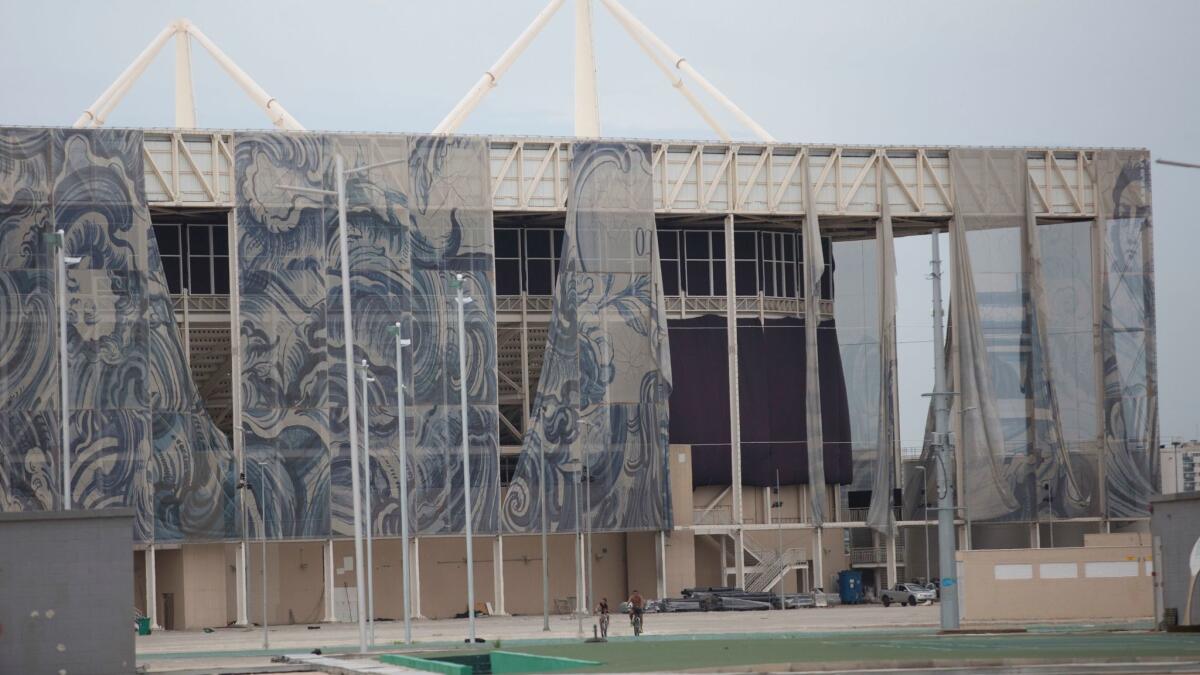Empty arenas and rusty medals — Rio struggles with aftermath of 2016 Summer Olympics

- Share via
The notion of “legacy” has been a big part of the Olympic movement over the years.
It’s a catch-all phrase that refers to the International Olympic Committee’s oft-stated desire to leave a lasting and positive impact on the cities that spend billions to host its Summer and Winter Games.
But recent reports suggest the IOC might be coming up short in Rio de Janeiro.
Speaking at a public hearing in the city that hosted the 2016 Summer Olympics, a Brazilian federal prosecutor reported this week that many of the sparkling new venues from last August are now deserted and boarded up.
“There was no planning,” Leandro Mitidieri was quoted as saying by the Associated Press. “There was no planning when they put out the bid to host the Games.”
At best, Olympic legacy has been a mixed bag.
The 1984 Games in Los Angeles generated a surplus that still funds community sports projects. Cities such as Montreal and Athens were left with massive deficits and unneeded venues.
In Rio, which spent a reported $12 billion to stage the Olympics, timing was a particular problem. The once-booming national economy had slumped heading into 2016, which forced organizers to make a series of last-minute cutbacks.
Talk of “white elephant” venues follows news that the city’s former mayor, Eduardo Paes, has come under investigation for allegedly accepting bribes linked to construction projects. He has denied any wrongdoing.
To make matters worse, it seems that more than 100 medals awarded in Rio are now showing signs of rust.
An organizing committee spokesman has placed much of the blame on athletes, saying they mishandled their medals. Brazil’s mint has offered to make repairs.
Follow @LAtimesWharton on Twitter
More to Read
Go beyond the scoreboard
Get the latest on L.A.'s teams in the daily Sports Report newsletter.
You may occasionally receive promotional content from the Los Angeles Times.






